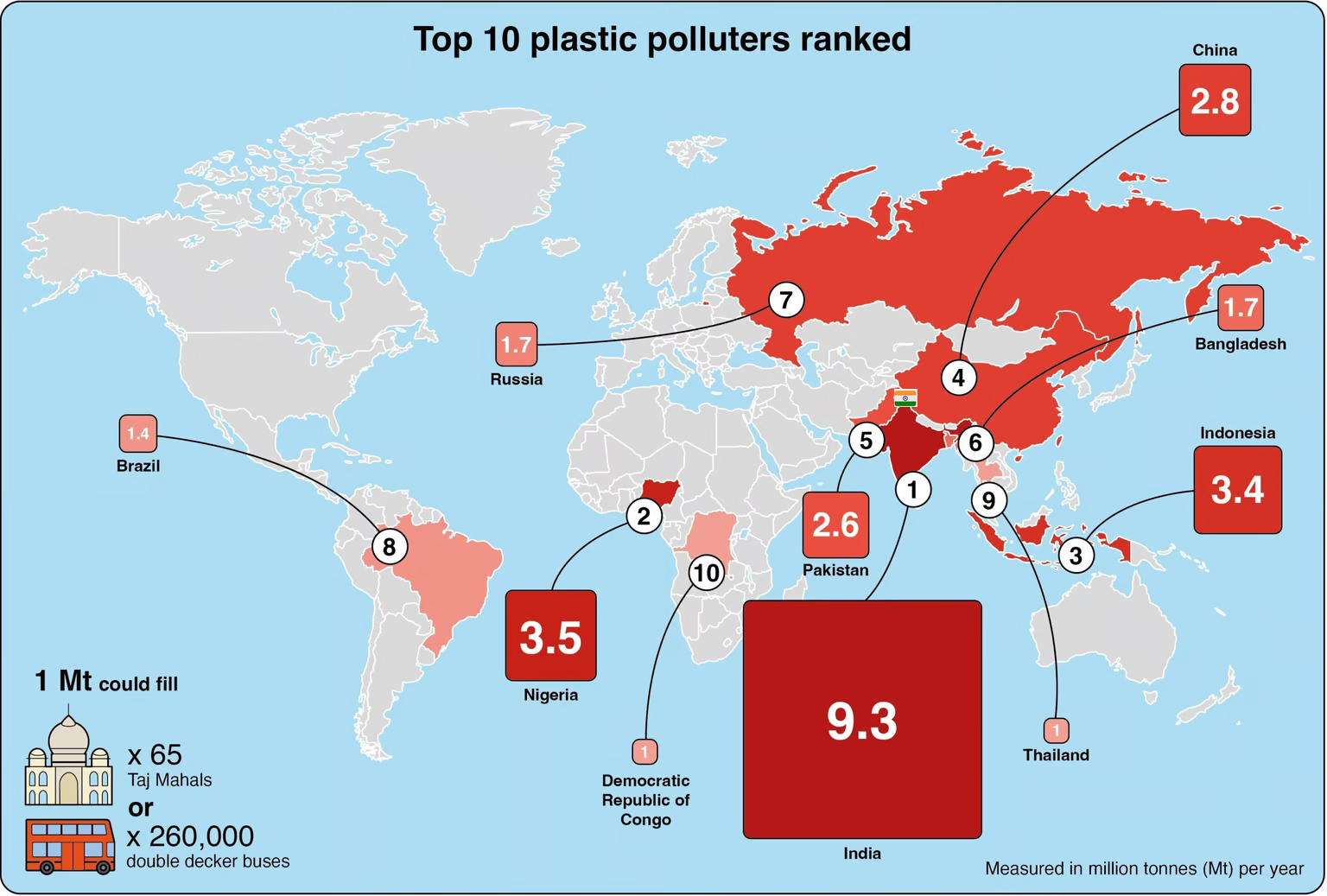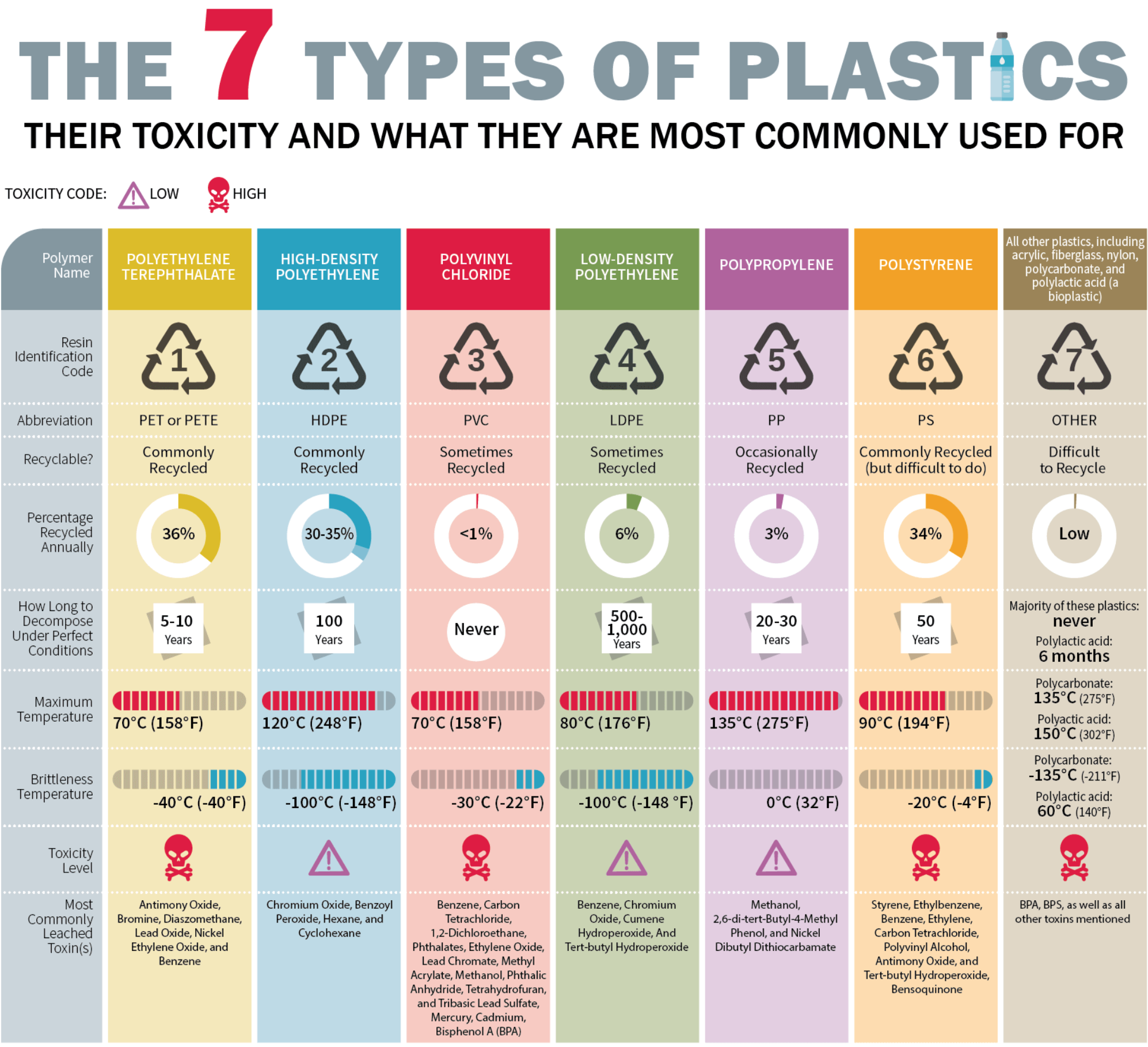Global Plastic Treaty | 03 Dec 2024
For Prelims: UN Environment Assembly, European Union, Extended Producer Responsibility, Organisation for Economic Co-operation and Development, Fossil fuels, Polymers, UN Intergovernmental Negotiating Committee
For Mains: Plastic Pollution and Waste Management, UN Global Plastic Treaty, International Relations and Environmental Diplomacy,Environmental Policy and Governance
Why in News?
Global plastic treaty talks failed to reach a consensus at the 5th meeting of the United Nations(UN) Intergovernmental Negotiating Committee (INC-5) in Busan, South Korea.
- A resolution adopted in 2022 at the UN Environment Assembly in Nairobi aimed to establish global rules to curb plastic pollution by the end of 2024, but nations were unable to reach an agreement.
- The delegations agreed that another session would be scheduled in 2025, tentatively being calling "INC-5.2," to finalize the treaty.
Why did the Global Plastic Treaty Talks Failed to Reach a Consensus?
- Limits on Plastic Production: A central issue of contention was whether countries should agree to targets for reducing the production of virgin plastic polymers (made from raw materials derived from petroleum).
- A group of 66 countries, led by Norway and Rwanda, along with the European Union, argue for capping plastic production to control the environmental impact of plastics.
- Nations like Saudi Arabia and India, which rely heavily on petrochemicals and plastic production for their economies, opposed any measures that would limit production.
- Development Concerns: India argued that regulating plastic production would infringe upon its right to development, especially given the country's role in the global plastic polymer market.
- India’s position was that any treaty should not undermine national growth aspirations.
- Unacceptable Targets: The draft treaty proposed year-wise targets to phase out single-use plastics and restrict hazardous chemicals like Di(2-ethylhexyl) phthalate (DEHP), Dibutyl phthalate (DBP), Benzyl butyl phthalate (BBP) , and Di-isobutyl phthalate (DIBP) by 2040.
- These measures, while aimed at reducing plastic pollution, were rejected by some countries due to their perceived negative economic impacts.
- While India has taken steps to curb plastic waste, including banning short-lived plastics and implementing an Extended Producer Responsibility (EPR) regime, it opposed the proposed targets, asserting that such regulations could harm the country's development.
- Disagreements on Treaty's Scope: While many nations wanted the treaty to address the full lifecycle of plastics (including production, consumption, waste management, and its impact), some delegations felt the focus should be on plastic waste alone.
- This created tension between those seeking comprehensive solutions and those prioritizing immediate waste management.
- Kuwait criticized expanding the mandate beyond plastic pollution, claiming it was a pretext for trade restrictions and economic agendas.
- UN Environment Programme: Highlighted the urgency of action, warning against prolonged negotiations as oceans and ecosystems suffer from plastic waste accumulation.
UN Intergovernmental Negotiating Committee
- About: The UN INC is a key body established by the UN Environment Assembly (UNEA) to develop a legally binding international instrument to address plastic pollution, including its impact on marine environments.
- UN Member States adopt Resolution 5/14 in 2022 to work toward a legally binding global plastics treaty.
- INC Sessions: The process of negotiation, aimed at finalizing the global plastics treaty by the end of 2024, involves a series of sessions held globally, starting from INC-1 in Uruguay (November 2022), continuing through INC-2 in France (June 2023), and INC-3 in Kenya (November 2023), INC-4 in Canada (April 2024), and INC-5 in South Korea (December 2024).
Why Does the World Need a Global Plastic Treaty?
- Explosive Growth: The global production of plastic has doubled from 234 million tonnes (mt) in 2000 to 460 mt in 2019.
- Projections suggest that plastic production will reach 700 mt by 2040, according to the Organisation for Economic Co-operation and Development (OECD).
- Asia is the largest producer of plastic, accounting for nearly half of global production. North America and Europe follow, with 19% and 15%, respectively.
- Impact of Plastic:
- Environment: Plastic can take anywhere from 20 to 500 years to decompose, leading to a massive accumulation of plastic waste in landfills and natural habitats.
- Despite the growing volume of plastic waste, only about 9% of plastic waste is recycled, as per a 2023 study by The Lancet. This inefficiency exacerbates the pollution crisis.
- Around 8 million tonnes of plastic end up in the oceans annually, harming marine life and ecosystems. By 2050, plastic could outweigh fish in the oceans if current trends continue.
- Human Health: Chemicals in plastics, such as bisphenol A (BPA), can disrupt the endocrine system, which regulates hormones in the body.
- Wildlife: Plastic pollution has devastating effects on marine and terrestrial species, with animals ingesting or becoming entangled in plastic waste.
- Climate Change: Plastic production contributes 3.6% of global greenhouse gas emissions, with 90% of those emissions coming from fossil fuels used to create plastic.
- If current trends continue, greenhouse gas emissions from plastics could rise by 37% from 2020 levels to 3.35 gigatonnes of Carbon dioxide equivalent (CO2e) by 2050.
- Environment: Plastic can take anywhere from 20 to 500 years to decompose, leading to a massive accumulation of plastic waste in landfills and natural habitats.
- Importance of Global Plastic Treaty: A global treaty is needed to regulate plastic throughout its lifecycle, from production to disposal.
- To tackle the plastic pollution crisis, nations must commit to legally binding agreements that curb production, improve recycling, and prevent plastic waste from entering ecosystems.
What Challenges Hinder a Global Treaty on Plastic Pollution?
- Divergent National Interests: Developed nations push for lifecycle approaches to manage plastic production and consumption.
- Developing and petrochemical-centric nations view such measures as restrictive and detrimental to economic growth.
- Trade Implications: Plastic is a globally traded commodity, and any restrictions can have significant trade implications, making consensus difficult.
- Funding and Resources: Low- and middle-income countries often lack the resources to implement comprehensive plastic pollution measures, leading to disagreements over financial support and responsibility.
- Political Will and Leadership: Despite the shared understanding of the crisis, the political will to implement transformative measures was lacking. Balancing immediate economic interests with long-term environmental sustainability can be challenging for policymakers.
What are Plastics?
- About: Plastics are materials, either synthetic or natural, that can be shaped when soft and then hardened to retain their form.
- Plastics are polymers made up of repeating units called monomers. A polymer is a large molecule formed by chemically linking many smaller monomers together.
- Types of Plastic:
- India and Plastics Problem: India is presently the biggest contributor to plastic pollution in the world, and releases 9.3 million tonnes of plastic waste every year which is almost 20% of the global generation of plastic waste.
- A large portion of India’s plastic waste, approximately 3.5 million tonnes, is released into the environment due to poor waste management practices.
- As India's urban areas expand, the demand for plastic products, especially packaging, rises, leading to increased plastic waste and challenges in waste management.
- India’s infrastructure for managing plastic waste is underdeveloped. There are more uncontrolled dumping sites than sanitary landfills.
- Open burning is a common waste disposal practice in India, leading to the release of toxic pollutants into the atmosphere. This contributes to both air pollution and public health problems.
- India stands to lose an estimated USD 133 billion in material value from plastic packaging waste by 2030, with a significant portion of that loss attributed to uncollected plastic waste.
- The EPR system in India faces implementation challenges, with inconsistent enforcement of plastic waste management laws.
- The growth of e-commerce has increased plastic packaging waste, much of which is non-recyclable and contributes to environmental pollution.
India’s Initiatives to Curb Plastics:
Way Forward
- Building Consensus: Emphasize mutual benefits, including the economic advantages of reducing plastic pollution, to reconcile differences.
- Highlight India’s measures, like sustainable packaging, as models for balancing development and environmental protection.
- Financial and Technical Support: Create frameworks to assist developing nations in transitioning to sustainable plastic production. Expand funding and technology-sharing mechanisms to enhance compliance.
- Enhancing Ambition Through Incremental Targets: Introduce phased commitments with flexibility for countries at different levels of development. Prioritize global bans on harmful single-use plastics and chemicals, ensuring uniformity.
- Leveraging Public and Global Advocacy: Utilize international pressure and public awareness campaigns to bolster support for a high-ambition treaty. Engage civil society and environmental organizations to monitor and critique negotiation outcomes.
|
Drishti Mains Question: Evaluate the implications of the UN's plastic treaty negotiations and the challenges in balancing development with environmental sustainability. |
UPSC Civil Services Examination, Previous Year Questions (PYQs)
Prelims
Q.1 In India, ‘extend producer responsibility’ was introduced as an important feature in which of the following? (2019)
(a) The Bio-medical Waste (Management and Handling) Rules, 1998
(b) The Recycled Plastic (Manufacturing and Usage) Rules, 1999
(c) The e-Waste (Management and Handling) Rules, 2011
(d) The Food Safety and Standard Regulations, 2011
Ans: (c)
Q.2 How is the National Green Tribunal (NGT) different from the Central Pollution Control Board (CPCB)? (2018)
- The NGT has been established by an Act whereas the CPCB has been created by an executive order of the Government.
- The NGT provides environmental justice and helps reduce the burden of litigation in the higher courts whereas the CPCB promotes cleanliness of streams and wells, and aims to improve the quality of air in the country.
Which of the statements given above is/are correct?
(a) 1 only
(b) 2 only
(c) Both 1 and 2
(d) Neither 1 nor 2
Ans: (b)
Mains:
Q: What are the impediments in disposing the huge quantities of discarded solid waste which are continuously being generated? How do we remove safely the toxic wastes that have been accumulating in our habitable environment? (2018)


